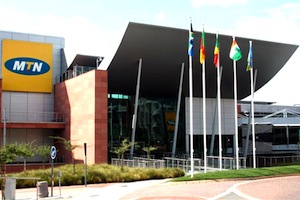The share price of JSE-listed cellphone group MTN has been knocked lower in recent weeks because of fears of a slowdown at its lucrative Nigerian subsidiary.
Investors are worried that a new law requiring Nigerians to register their Sim cards, coupled with a move by the Nigerian Communications Commission to introduce an asymmetric interconnection regime to benefit new entrants in that country’s telecommunications industry, will exert downward pressure on MTN’s earnings in 2010.
There are also concerns about the continuing strength of the rand against Nigeria’s currency, the naira, and the impact this will have on MTN’s earnings.
The naira has weakened from N16,13/R in June 2009 to N20,55/R now. In the six months to June 2009, R10,9bn, or 44% of MTN’s Ebitda of R24,5bn, was generated by its Nigerian subsidiary. Ebitda, or earnings before interest, tax, depreciation and amortisation, is an indicator of a company’s profitability.
MTN is due to report its financial results for the year to 31 December 2009 in late February or early March.
However, those results are unlikely to reflect the impact of the new laws and regulations in Nigeria. The impact will first be felt in the interim results to June 2010.
Nevertheless, the group’s share price has fallen in recent months in anticipation of tougher times ahead and was last trading at R108,18 – that’s down nearly 15% in the past three months. Year-on-year, the share is trading flat.
Last week, investment bank UBS removed MTN from its top telecoms stock picks, sending the share price tumbling more than 2%. UBS attributed its decision to drop the share to Nigeria’s plan to introduce Sim card registration. This, it said, would result in a sharp reduction in revenue growth at MTN Nigeria in 2010 and also lead to an increase in costs.
The registration process is similar to legislation introduced in SA that requires cellphone users to provide their IDs and proof of residence when buying new Sim cards. The SA law, known as Rica, has resulted in a sharp decline in the number of new connections on the networks of Vodacom, MTN and Cell C since its introduction in August 2009.
Sim card registration isn’t the only headache facing MTN. The NCC’s decision to reduce interconnection rates — the fees mobile operators charge one another to carry calls on their networks — could hit MTN, the biggest operator in Nigeria, hard.
Compounding matters for MTN is the news that the NCC has also introduced asymmetric interconnect, which means that large incumbents such as MTN and Glo Mobile will pay smaller operators more than the smaller operators pay them. The idea is to foster greater competition in the market by giving a leg-up to smaller players.
According to Nigerian newspaper reports, the new general interconnection tariff, which took effect on 1 January, is set at N8,20 (R0,40) a minute, down from N11,55 (R0,58) before. Newer, smaller operators will benefit from a N10,20 (R0,50) interconnect rate, but this will also be reduced to N8,20 by 2012.
At the end of June 2009, MTN Nigeria had 48% market share with 27,3m customers on its books. It said at the time that it expected to add another 7,4m subscribers by December 2009 – it’s not yet known if it achieved this target.
David Shapiro of Sasfin Securities says he is not bullish about MTN’s share price. Though he says there may be a buying opportunity if the share falls below R100, he’d rather wait for the presentation of the group’s annual results before making a buying decision.
Shapiro says he became concerned about the MTN share when it failed to pick up after the collapse of the group’s merger discussions with India’s Bharti Airtel.
“When everyone talks bullishly about a share and it doesn’t respond, then you’ve got to start worrying,” he says. “If the fruit is so low-hanging, why aren’t people picking it?”
Shapiro says that MTN has always traded on a “fairly demanding multiple” and as the market begins to mature, that multiple “will start to unwind”. — Duncan McLeod, TechCentral
- Subscribe to our free daily newsletter
- Follow us on Twitter or on Facebook





